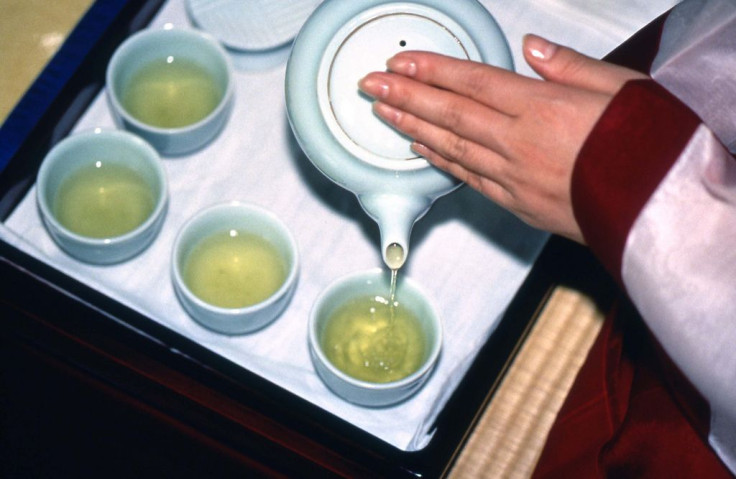Green Tea Polyphenol Helps Kill Oral Cancer Cells By Destroying Mitochondria

First it targeted pancreatic cancer. Now it’s moved onto oral cancer. A new study from Penn State University shows the main antioxidant in green tea, epigallocatechin-3-gallate (EGCG), helps kill cancer cells through the destruction of the cells’ mitochondria.
While highly effective at eradicating cancer cells, chemotherapy is quickly falling out of practice with doctors who seek targeted treatments. Instead of getting rid of just the harmful cells, chemo attacks healthy cells, which are often found in the hair and the intestines, resulting in the characteristic hair loss and frequent immune system-related illness.
“You don’t see these sorts of side effects with green tea consumption,” said Joshua Lambert, associate professor of food science at Penn State, in a press release. Lambert and his colleagues carried out their study by looking at cell cultures, which they injected with the same amount of EGCG a person would normally have in her saliva after chewing green tea-flavored gum. They saw a number of promising reactions.
“It looks like EGCG causes the formation of reactive oxygen species in cancer cells, which damages the mitochondria, and the mitochondria responds by making more reactive oxygen species,” Lambert explained. Over time, the mitochondria lose even more of its defenses with a breakdown in the expression of antioxidant genes. In their weakened state the cancer cells eventually succumb to EGCG in full, and they die.
This isn’t the first time EGCG revealed its cancer-killing power. In May of last year, scientists from the Los Angeles Biomedical Research Institute (LA BioMed) discovered the compound’s ability to prevent and slow the growth of pancreatic cancer. One of the key enzymes in pancreatic cancer cells is known as LDHA, and prior studies have shown the enzyme inhibitor oxamate is instrumental in destroying LDHA. In similar culture tests, LA BioMed researchers found EGCG rivaled oxamate in its destructive power.
The scientists on either coast share the same goal: getting rid of cancer. Many forms of the disease are rising in prevalence, particularly in developing nations where the Western diet wields a dangerous, processed influence. Lung cancer, for example, recently passed breast cancer as the most fatal form of cancer among women in the developed world. Pancreatic cancer is nearly just as bad. Of the 45,000 diagnoses each year in the U.S., 85 percent of cases are fatal.
For Lambert and his research team, the more immediate goal is to move out of cell cultures. The next step is animal models, so they can see what kind of side effects — if any — EGCG brings. If the mitochondria continue to wither in the compound’s presence, they’ll move a step closer to developing alternative therapies for oral cancer that don’t rely on the wide-scoped forces of chemo.
Source: Tao L, Park J, Lambert J. Differential prooxidative effects of the green tea polyphenol, (–)-epigallocatechin-3-gallate, in normal and oral cancer cells are related to differences in sirtuin 3 signaling. Molecular Nutrition & Food Research. 2015.



























